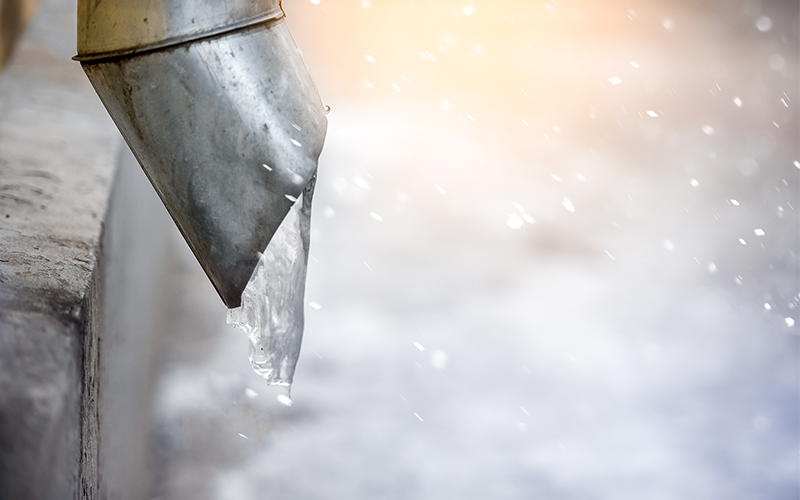
Not sure whether your outdoor faucets are frost-free or standard? Consult a plumber for help in identifying what you have and advice on how you can better protect these vulnerable fixtures. You can also purchase inexpensive insulating covers to slip over faucets outside. If your outdoor faucet is “frost-free,” these steps are less critical, but you may still want to shut off the water supply just to be safe. To winterize your faucets, shut off the water supply to the faucet inside the house, then open the spigot outside.

So convenient in the warmer months for connecting garden hoses and filling watering cans, these faucets can freeze if not properly winterized each year. One type of plumbing fixture that is always exposed to freezing temperatures each winter is your outdoor spigots.
#Do frozen pipes always burst professional#
Professional plumbers will have more advanced insulation solutions available and can help you determine which pipes in your home are most vulnerable to freezing.

If any section of pipe isn’t accessible, or if you want to “level up” your pipe insulation, contact a plumber for assistance. Look for the thickest insulation you can find and remember not to leave gaps between sections.
#Do frozen pipes always burst install#
Insulating pipes can be an inexpensive DIY project, as your local hardware or home improvement store sells foam pipe sleeves that are easy to install for just about anyone. Luckily, adding insulation, either to your home’s structure in these particular locations or directly to pipes, can make a big difference. Ideally, none of your home’s plumbing would be exposed to freezing temperatures, but water pipes sometimes need to be routed through unheated areas. In fact, a study reported on by the Insurance Institute for Business & Home Safety found that uninsulated pipes in unheated locations like attics, basements, crawl spaces, and garages, quickly begin to freeze as soon as the outdoor temperature falls to 20 ☏. Unfortunately, temperatures don’t have to be quite so low for pipes to freeze.Īs long as temperatures remain just a bit below 32 ☏ (water’s freezing point) for more than a few hours, your home’s plumbing system may be in danger.

Here in Ressler & Mateer’s home service area in southcentral PA, we’re fortunate not to experience weeks or months of sub-zero temperatures even in the dead of winter, but we still have the occasional extreme cold snap. That’s why we’re offering a closer look at how you can easily avoid a cold-weather plumbing emergency this year. Of course, not experiencing a pipe freeze in the first place is the ultimate goal. If you do experience frozen pipes, there are also a few ways to thaw them safely. The good news is, a little preventative action before freezing weather arrives for the season can assure that even your “at risk” pipes keep on flowing no matter how low temperatures may go. And burst pipes lead to major plumbing emergencies and expensive water damage in your home.


 0 kommentar(er)
0 kommentar(er)
